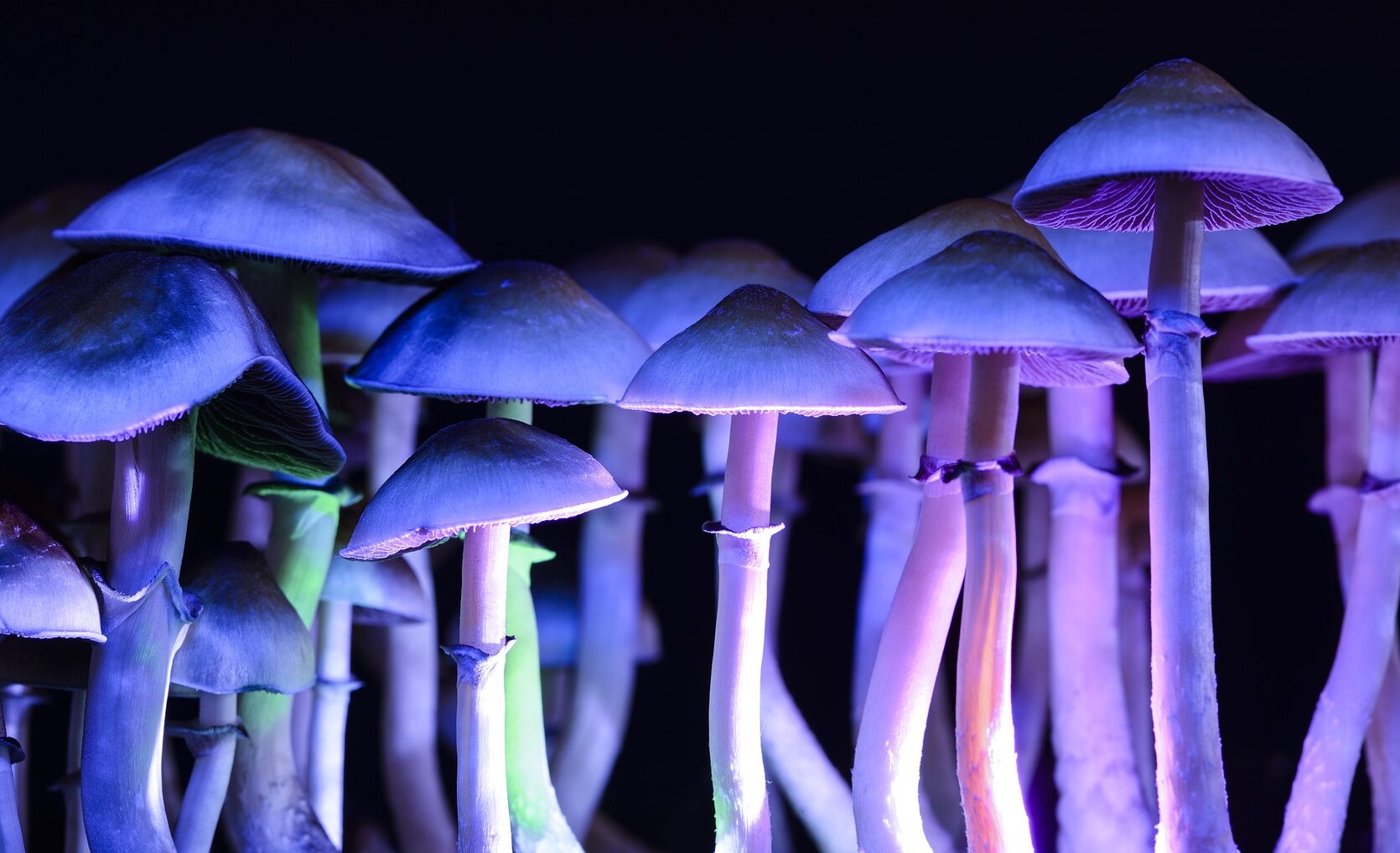Brands are shifting back to celebrity influencers—so what happens to micro-influencers? Discover how data-driven strategies balance reach, authenticity, and sustainability in influencer marketing.

Tripping Towards the Middle Path
Throughout the COVID-19 pandemic and beyond, we heard about an increasing number of people struggling with mental health and reaching out for help. And of course, big pharma has been right there, ready to offer a quick fix, or maybe a not-so-quick fix… but that’s not new.
What was new though, is the openness about mental health, encouraging people to seek help, and the rising availability of mental health providers offering help via video, phone, and even chat. More ways to connect with providers has broken down barriers, giving more and more people the opportunity to seek the long-term benefits of talk therapy.
More recently, another group of stories about mental health caught our attention.
Move over cannabis, mushrooms are entering the mainstream.
In the FADS book, we talk about plants being the way forward as people seek natural alternatives to treating their ailments. While marijuana is the plant we focus on the most in the Drugs chapter, it looks like another plant is moving into the mainstream: mushrooms.
We’ve got mushrooms in our coffee to boost our immune system, mushrooms in skincare, replacing leather, being used as building materials, mushrooms to lower the risk of cancer, and even to treat COVID. And when that doesn’t work, your family can buy a coffin made of mushrooms.
Mushrooms are everywhere! And as we know from alcohol, hemp, and cannabis, prohibition doesn’t seem to stick forever, so we haven’t been too shocked by the new way of thinking about our very old fungal friends, those magic mushrooms.
“Mushrooms have become pretty cool now; everyone wants to try them,” said Kynan Cooke, the owner of Psacred Therapeutics, in Slate.
The History of Psychedelic Experimentation in the US
Psychedelic experimentation in the US took off like a rocket in the mid-20th century. In the 1950s and ’60s, researchers began exploring the mind-altering effects of substances like LSD, psilocybin (magic mushrooms), and mescaline. These studies were not limited to scientific circles but also extended to counterculture movements, with figures like Harvard’s Timothy Leary and Richard Alpert researching and advocating for the mind-expanding potential of psychedelics.
Psychedelic Prohibition
However, the party was short-lived. As the ’60s progressed, concerns at Harvard about the experiments led to the banishment of these two researchers from Academia.
At the same time, widespread concerns about the potential risks associated with psychedelic substances and their growing popularity led to a crackdown. The US government classified LSD as a Schedule I controlled substance in 1970, putting it in the same category as heroin and declaring it to have no recognized medical use and a high potential for abuse.
Despite this prohibition, the US CIA continued experiments using psychedelics until 1973 through their secret program MKUltra, inspiring major plot points in television and movies for years to come, including the popular Netflix series Stranger Things.
These types of secret experiments and the ways they have been depicted in popular media seemed to solidify the fear of psychedelics for a long time. Having a “bad trip” is something most teens are warned against, and even comedies that take the edge off drug use, like Broad City, get very dark while our friends are tripping.
Always bet on the marketers.
Don’t worry about it though. While big pharma staff and would-be investors pitch stories to the media to get those clicks on magic mushroom stories, they’re working their familiar magic on changing our views on mushrooms.
They’re making sure we learn all about exciting new research, and breakthroughs showing real promise for use with some very difficult-to-treat conditions.
And it works. Over the past decade, we’ve witnessed a monumental shift in attitudes toward cannabis and a resurgence of interest in the medical potential of psychedelics. Clinical trials have shown promising results for treating mental health conditions such as depression, anxiety, PTSD, and addiction. This research has prompted a reevaluation of the therapeutic value of psychedelics and challenged the previous stigma associated with their use.
In the realm of research, scientists have been conducting groundbreaking studies. Institutions like Johns Hopkins University and Imperial College London have been at the forefront of this research, investigating the potential of psychedelics in controlled settings.
As we know, profits will follow.
As an informed FADS Marketing reader, you know they’re not promoting psychedelics for your benefit (even though there appear to be very clear benefits for many people).
The powers that be see a potential profit, especially as attitudes towards psychedelics continue shifting. In fact, some have predicted significant changes in the mental health landscape in the next 3-5 years and an explosion in growth in the magic mushroom industry.
If we look at the path of cannabis legalization in the US, it might give us a glimpse into the future of psychedelics. From being widely demonized to gaining acceptance as a potential medical treatment, cannabis has slowly but surely paved its way toward legalization in various states.
Recent trends indicate that psychedelics may follow a similar trajectory, with growing recognition of their therapeutic potential leading to further decriminalization and potentially even nationwide legalization. Several cities and states in the US, such as Denver, Minneapolis, and Oakland, have decriminalized the possession and use of psychedelics, shifting the focus from punishment to education and harm reduction.
As research progresses, attitudes evolve (helped by marketers getting the word out), and conversations around mental health become more open, it’s likely that we’ll see continued exploration of psychedelics for medical purposes.
The key will be finding the middle path and striking a balance between responsible use, scientific rigor, and ensuring that individuals who can benefit from psychedelic therapy have access to safe and regulated treatments.
They've got their hooks in you.
FADS rise quickly, burn hot and fall out. They say you're fat, you're no fun, you need to relax, and you might even die alone.
In fact, FADS bank on the fact that you already believe all of that.
Ready to learn how it works?


